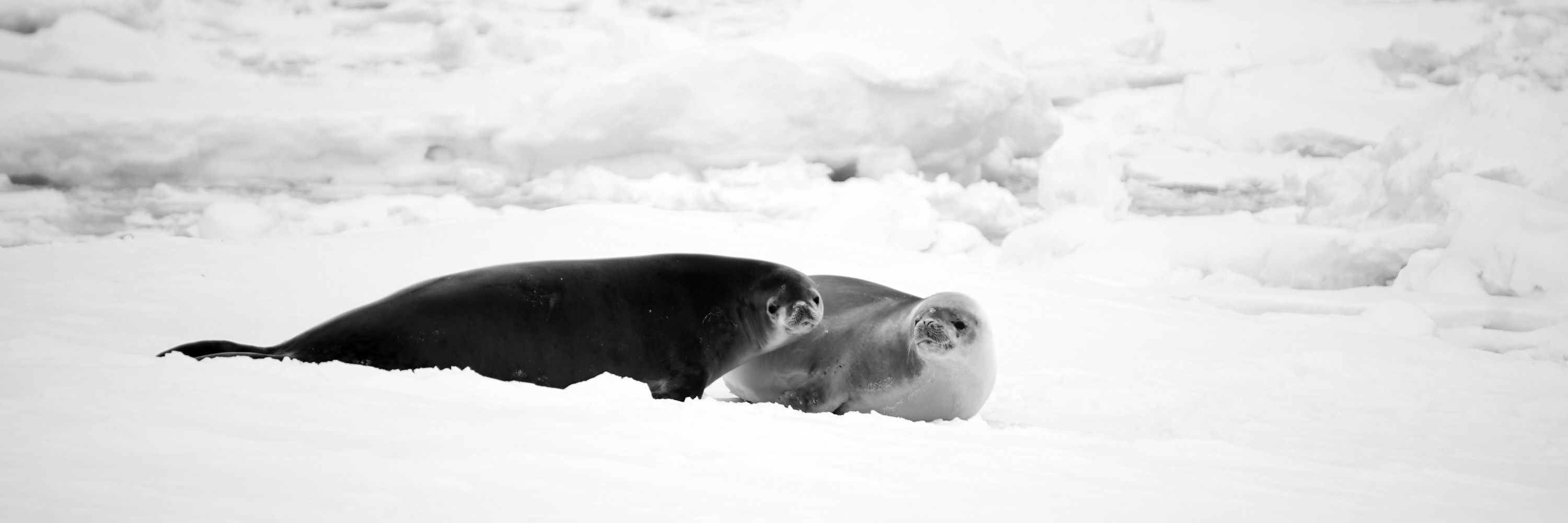
Sara Labrousse
@sara-labrousse.bsky.social
Antarctic marine ecologist (CNRS) - LOCEAN, Paris
@cnrsecologie.bsky.social @sorbonne-universite.fr @ipsl.bsky.social
@cnrsecologie.bsky.social @sorbonne-universite.fr @ipsl.bsky.social
Pinned
An enduring, 20-year, multidisciplinary seal-borne ocean sensor research collaboration in the Southern Ocean
Over the last 20 years (2004 to 2025), a French-Australian research and ocean observing collaboration has collected >400,000 temperature-salinity profiles providing broad coverage within the Indian Se...
doi.org
Over the last 20 years (2004 to 2025), a French-Australian research collaboration has collected >400,000 profiles providing key observations of the ecology of seals in the Southern Ocean and a detailed picture of how they utilise their dynamic ocean-ice environment.
doi.org/10.1525/elem...
doi.org/10.1525/elem...
Over the last 20 years (2004 to 2025), a French-Australian research collaboration has collected >400,000 profiles providing key observations of the ecology of seals in the Southern Ocean and a detailed picture of how they utilise their dynamic ocean-ice environment.
doi.org/10.1525/elem...
doi.org/10.1525/elem...
An enduring, 20-year, multidisciplinary seal-borne ocean sensor research collaboration in the Southern Ocean
Over the last 20 years (2004 to 2025), a French-Australian research and ocean observing collaboration has collected >400,000 temperature-salinity profiles providing broad coverage within the Indian Se...
doi.org
June 17, 2025 at 4:48 PM
Over the last 20 years (2004 to 2025), a French-Australian research collaboration has collected >400,000 profiles providing key observations of the ecology of seals in the Southern Ocean and a detailed picture of how they utilise their dynamic ocean-ice environment.
doi.org/10.1525/elem...
doi.org/10.1525/elem...
Reposted by Sara Labrousse
Océans : jusqu'où faut-il en arriver pour que la situation soit prise au sérieux ?
Par Les invités de Mediapart
Par Les invités de Mediapart

Océans : jusqu'où faut-il en arriver pour que la situation soit prise au sérieux ?
Alors que s'achève le sommet des océans de Nice, un ensemble de chercheurs en écologie marine et océanographes dresse un premier bilan et propose quelques principes fondamentaux pour susciter le sursaut collectif que la situation appelle. « La conférence UNOC3 aurait pu être l’occasion pour la France de prendre le leadership d'une transition écologique du secteur de la pêche et d'une réelle protection des écosystèmes marins. Mais les mesures annoncées lundi dernier par le Président sont très loin de cela ».
l.mediapart.fr
June 13, 2025 at 5:54 PM
Océans : jusqu'où faut-il en arriver pour que la situation soit prise au sérieux ?
Par Les invités de Mediapart
Par Les invités de Mediapart
Reposted by Sara Labrousse
Reposted by Sara Labrousse
👏 aux 21èmes JS du CNFRAA à Grenoble!! Merci à toutes et tous pour cette édition 2025 passionnante et engagée ! Vive la Science polaire et ceux qui l’a font!!
##CNFRAA #SciencePolaire #Recherche #Antarctique #Subantarctique #Climat #Biodiversitépolaire
##CNFRAA #SciencePolaire #Recherche #Antarctique #Subantarctique #Climat #Biodiversitépolaire

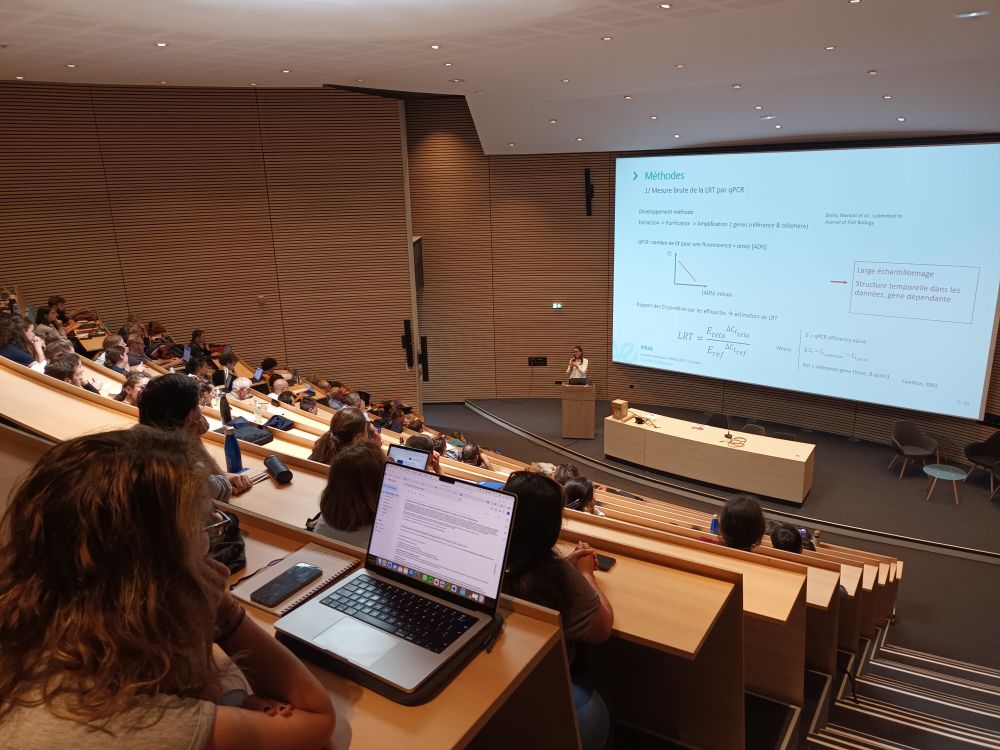

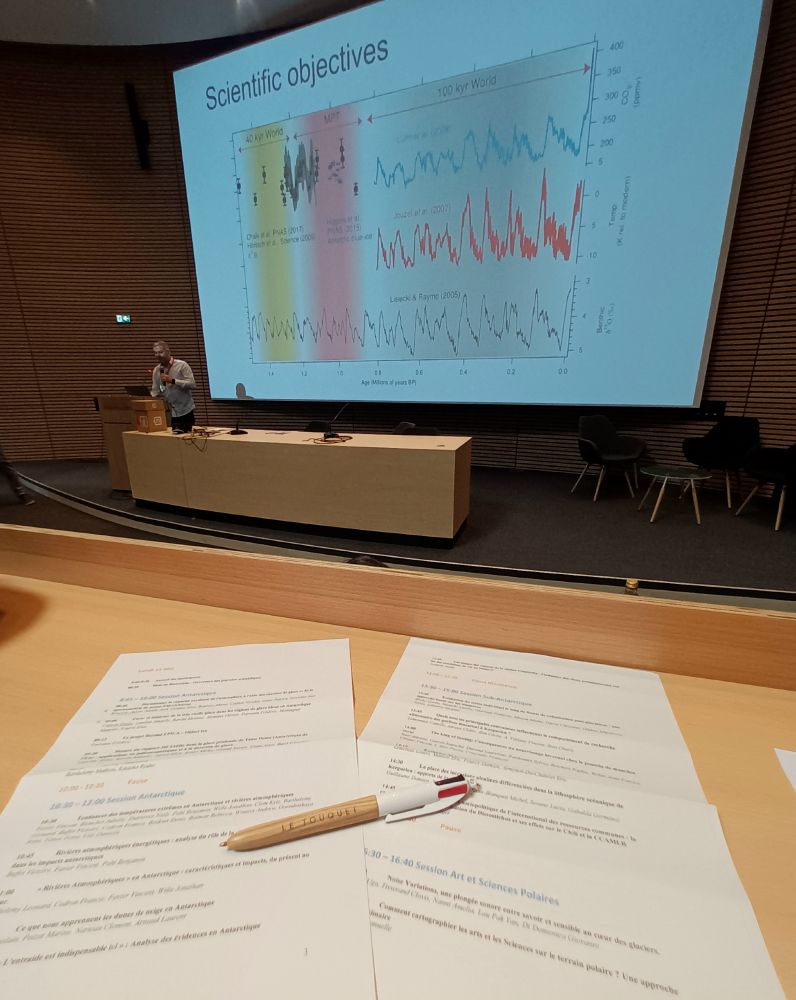
May 18, 2025 at 12:03 PM
👏 aux 21èmes JS du CNFRAA à Grenoble!! Merci à toutes et tous pour cette édition 2025 passionnante et engagée ! Vive la Science polaire et ceux qui l’a font!!
##CNFRAA #SciencePolaire #Recherche #Antarctique #Subantarctique #Climat #Biodiversitépolaire
##CNFRAA #SciencePolaire #Recherche #Antarctique #Subantarctique #Climat #Biodiversitépolaire
New study led by J. Garnier: "Emperor penguins likely disperse when habitat becomes unsuitable. This dispersal potentially increases global population by up to 7%, compared to no-dispersal scenarios when 4.3°C and 2°C climate scenarios lead to significant population declines" doi.org/10.1002/ece3...
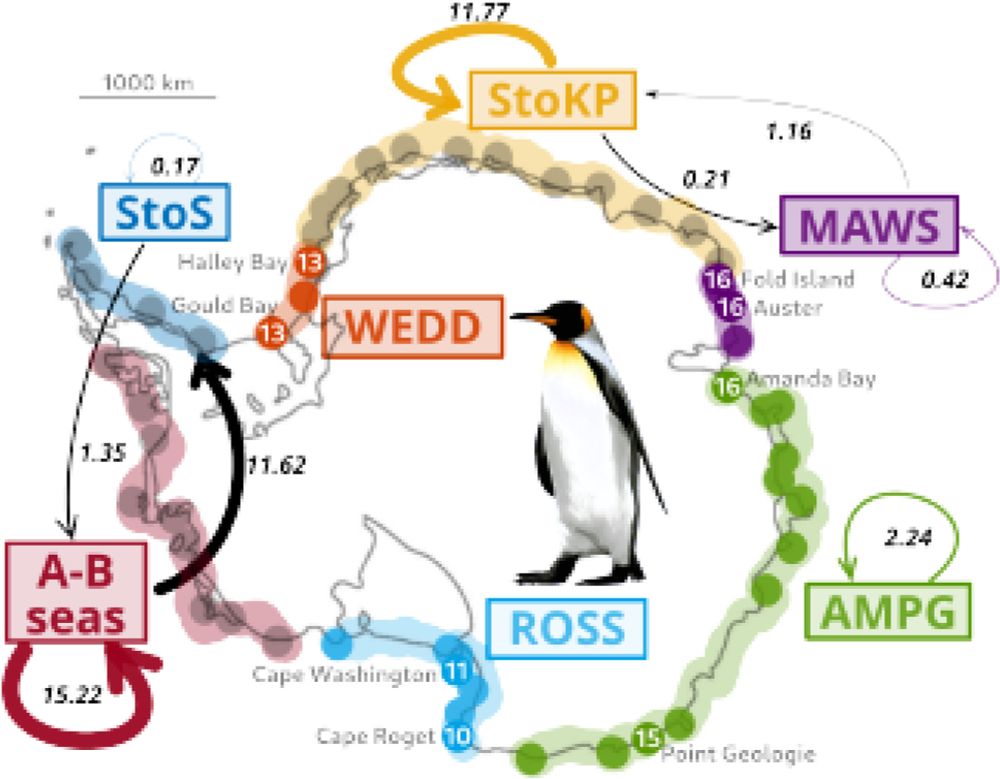
Coupling Genetic and Demographic Data to Reveal Dispersal Processes in Emperor Penguins
Dispersal is ubiquitous but dispersal rates, range, and behaviors remain difficult to measure. By developing new models combing demographic and genetic data, we propose to unravel species dispersal b...
doi.org
May 19, 2025 at 8:35 AM
New study led by J. Garnier: "Emperor penguins likely disperse when habitat becomes unsuitable. This dispersal potentially increases global population by up to 7%, compared to no-dispersal scenarios when 4.3°C and 2°C climate scenarios lead to significant population declines" doi.org/10.1002/ece3...
"Untangling the complexities of larval Antarctic krill overwintering success under climate change" led by Zephyr Sylvester is out : doi.org/10.1093/ices... @scar-antarctic.bsky.social
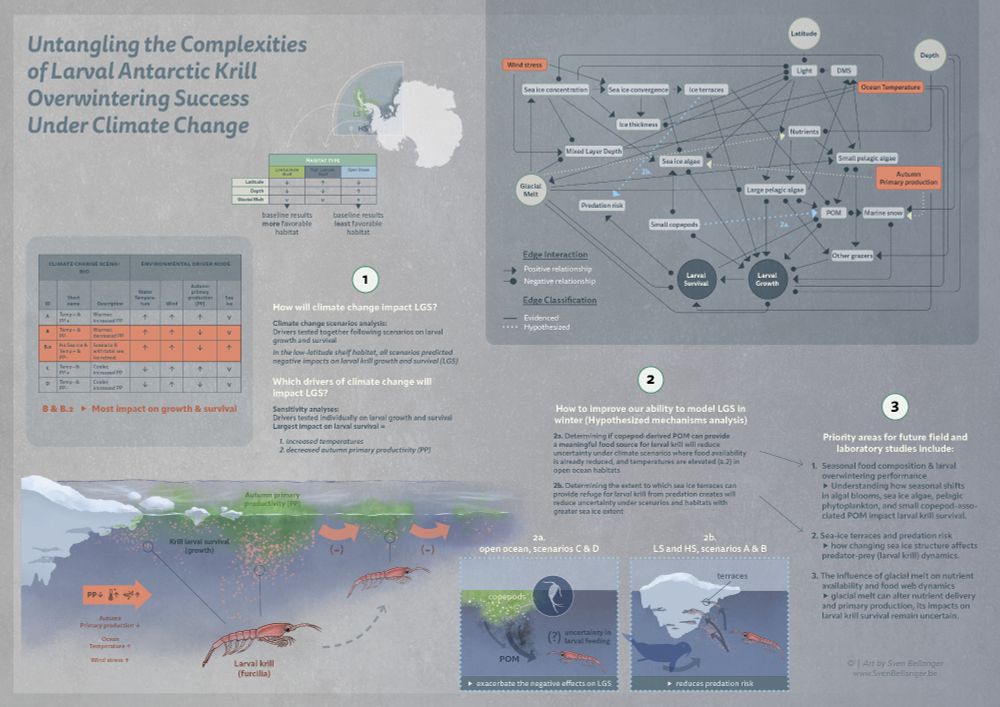
April 20, 2025 at 7:25 PM
"Untangling the complexities of larval Antarctic krill overwintering success under climate change" led by Zephyr Sylvester is out : doi.org/10.1093/ices... @scar-antarctic.bsky.social



